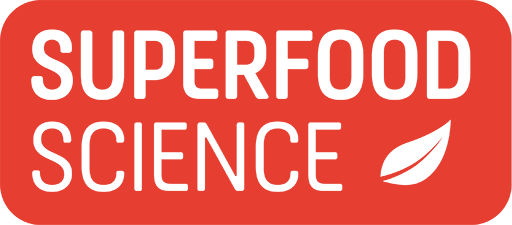With so many natural supplements claiming to support immune health, it's easy to feel overwhelmed. To simplify your search, we’ve narrowed down five natural supplement categories that are backed by emerging research for their ability to support a healthy immune response.
 1. Functional Mushrooms (Agaricus blazei Murill)
1. Functional Mushrooms (Agaricus blazei Murill)
Functional mushrooms are gaining popularity for their immune-supportive compounds, particularly Agaricus blazei Murill (AbM, also known as Agaricus subrufescens Peck). This mushroom is rich in beta-glucans, naturally occurring polysaccharides known to support immune health.
Several human and animal studies suggest that AbM extract may enhance natural killer cell activity and help modulate immune responses in the body (Sorimachi et al., 2001; Hetland et al., 2008).
One product that contains USA-grown certified organic AbM is Agaricus Bio® by Superfood Science.
2. Probiotics
Gut health and immune function are deeply connected. In fact, approximately 70% of immune cells reside in the gastrointestinal tract. Probiotic supplements can help restore and maintain a healthy microbiome, which plays a critical role in supporting immune balance.
Clinical research suggests that certain probiotic strains can enhance immune response by supporting gut barrier integrity and modulating immune signaling (Bron et al., 2012).
3. Matcha Green Tea (Camellia sinensis)
Matcha green tea is a rich source of catechins, a type of antioxidant that helps neutralize free radicals and reduce oxidative stress, which may benefit immune health.
Matcha has also been linked to improved cognitive function and emotional resilience, two factors that indirectly support immune function through stress regulation (Dietz & Dekker, 2017). Select ceremonial-grade certified organic matcha for its maximum quality and health benefits.
4. Elderberry (Sambucus nigra)
Elderberry has been used for centuries in traditional wellness practices. It is rich in flavonoids, which may help modulate the body’s immune response and support respiratory health.
Some studies suggest that elderberry extract may reduce the duration of common cold symptoms, although more clinical research is needed to confirm its long-term benefits (Tiralongo et al., 2016).
5. Turmeric Curcumin
Turmeric contains curcumin, a compound widely studied for its antioxidant and inflammation-modulating effects. Curcumin has been shown to influence immune cells such as T-cells, B-cells, and macrophages, supporting immune health (Jagetia & Aggarwal, 2007).
However, curcumin’s natural absorption is poor, so look for formulations that include black pepper extract (BioPerine®) and oils to enhance bioavailability. For example, Vitality Rescue™ includes CurcuWIN® curcumin extract, BioPerine®, and omega-3-rich tuna oil to improve absorption by over 2000%.
Final Takeaway
These five natural supplements—functional mushrooms, probiotics, matcha green tea, elderberry, and turmeric curcumin—each provide unique compounds that support different aspects of immune system function. Always consult your healthcare provider before adding new supplements, especially if you are taking prescription medications or have pre-existing conditions.
References
- Bron, P. A., Kleerebezem, M., Brummer, R. J., Cani, P. D., Mercenier, A., MacDonald, T. T., & Garcia-Ródenas, C. L. (2012). Can probiotics modulate human disease by impacting intestinal barrier function? British Journal of Nutrition, 107(7), 93–107. https://doi.org/10.1017/S000711451100401X
- Dietz, C., & Dekker, M. (2017). Effect of green tea on rewards learning and memory: A systematic review. Journal of Nutritional Biochemistry, 40, 1–13. https://doi.org/10.1016/j.jnutbio.2016.11.010
- Hetland, G., Johnson, E., Bernardshaw, S., Lyberg, T., & Kvalheim, G. (2008). The mushroom Agaricus blazei Murill protects against allergy by inducing interleukin-10 and inhibiting pro-inflammatory cytokines. Scandinavian Journal of Immunology, 68(2), 145–153. https://doi.org/10.1111/j.1365-3083.2008.02130.x
- Jagetia, G. C., & Aggarwal, B. B. (2007). “Spicing up” of the immune system by curcumin. Journal of Clinical Immunology, 27(1), 19–35. https://doi.org/10.1007/s10875-006-9066-7
- Sorimachi, K., Akimoto, K., Hattori, Y., & Nakajima, M. (2001). Activation of macrophages by Agaricus blazei Murill. Phytotherapy Research, 15(7), 590–592. https://doi.org/10.1002/ptr.871
- Tiralongo, E., Wee, S. S., & Lea, R. A. (2016). Elderberry supplementation reduces cold duration and symptoms in air-travelers: A randomized, double-blind placebo-controlled clinical trial. Nutrients, 8(4), 182. https://doi.org/10.3390/nu8040182
